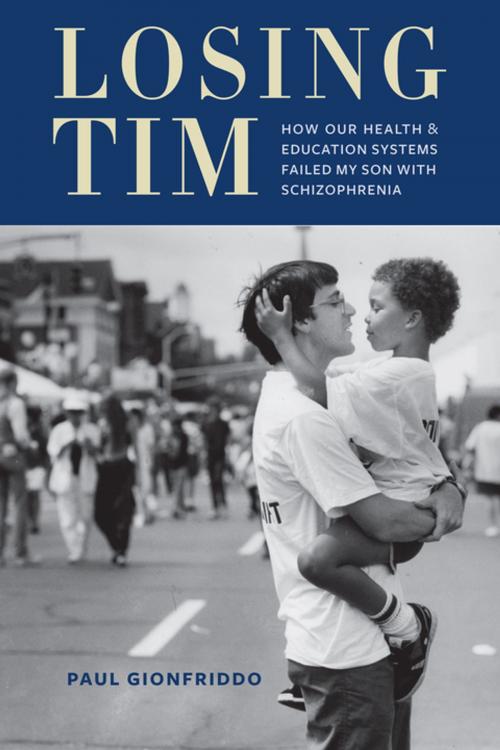Losing Tim
How Our Health and Education Systems Failed My Son with Schizophrenia
Nonfiction, Health & Well Being, Psychology, Child & Adolescent, Child Psychology, Social & Cultural Studies, Social Science, Social Work| Author: | Paul Gionfriddo | ISBN: | 9780231537155 |
| Publisher: | Columbia University Press | Publication: | October 7, 2014 |
| Imprint: | Columbia University Press | Language: | English |
| Author: | Paul Gionfriddo |
| ISBN: | 9780231537155 |
| Publisher: | Columbia University Press |
| Publication: | October 7, 2014 |
| Imprint: | Columbia University Press |
| Language: | English |
Paul Gionfriddo's son Tim is one of the "6 percent"—an American with serious mental illness. He is also one of the half million homeless people with serious mental illnesses in desperate need of help yet underserved or ignored by our health and social-service systems.
In this moving, detailed, clear-eyed exposé, Gionfriddo describes how Tim and others like him come to live on the street. Gionfriddo takes stock of the numerous injustices that kept his son from realizing his potential from the time Tim first began to show symptoms of schizophrenia to the inadequate educational supports he received growing up, his isolation from family and friends, and his frequent encounters with the juvenile justice system and, later, the adult criminal-justice system and its substandard mental health care. Tim entered adulthood with limited formal education, few work skills, and a chronic, debilitating disease that took him from the streets to jails to hospitals and then back to the streets. Losing Tim shows that people with mental illness become homeless as a result not of bad choices but of bad policy. As a former state policy maker, Gionfriddo concludes with recommendations for reforming America's ailing approach to mental health.
Paul Gionfriddo's son Tim is one of the "6 percent"—an American with serious mental illness. He is also one of the half million homeless people with serious mental illnesses in desperate need of help yet underserved or ignored by our health and social-service systems.
In this moving, detailed, clear-eyed exposé, Gionfriddo describes how Tim and others like him come to live on the street. Gionfriddo takes stock of the numerous injustices that kept his son from realizing his potential from the time Tim first began to show symptoms of schizophrenia to the inadequate educational supports he received growing up, his isolation from family and friends, and his frequent encounters with the juvenile justice system and, later, the adult criminal-justice system and its substandard mental health care. Tim entered adulthood with limited formal education, few work skills, and a chronic, debilitating disease that took him from the streets to jails to hospitals and then back to the streets. Losing Tim shows that people with mental illness become homeless as a result not of bad choices but of bad policy. As a former state policy maker, Gionfriddo concludes with recommendations for reforming America's ailing approach to mental health.















